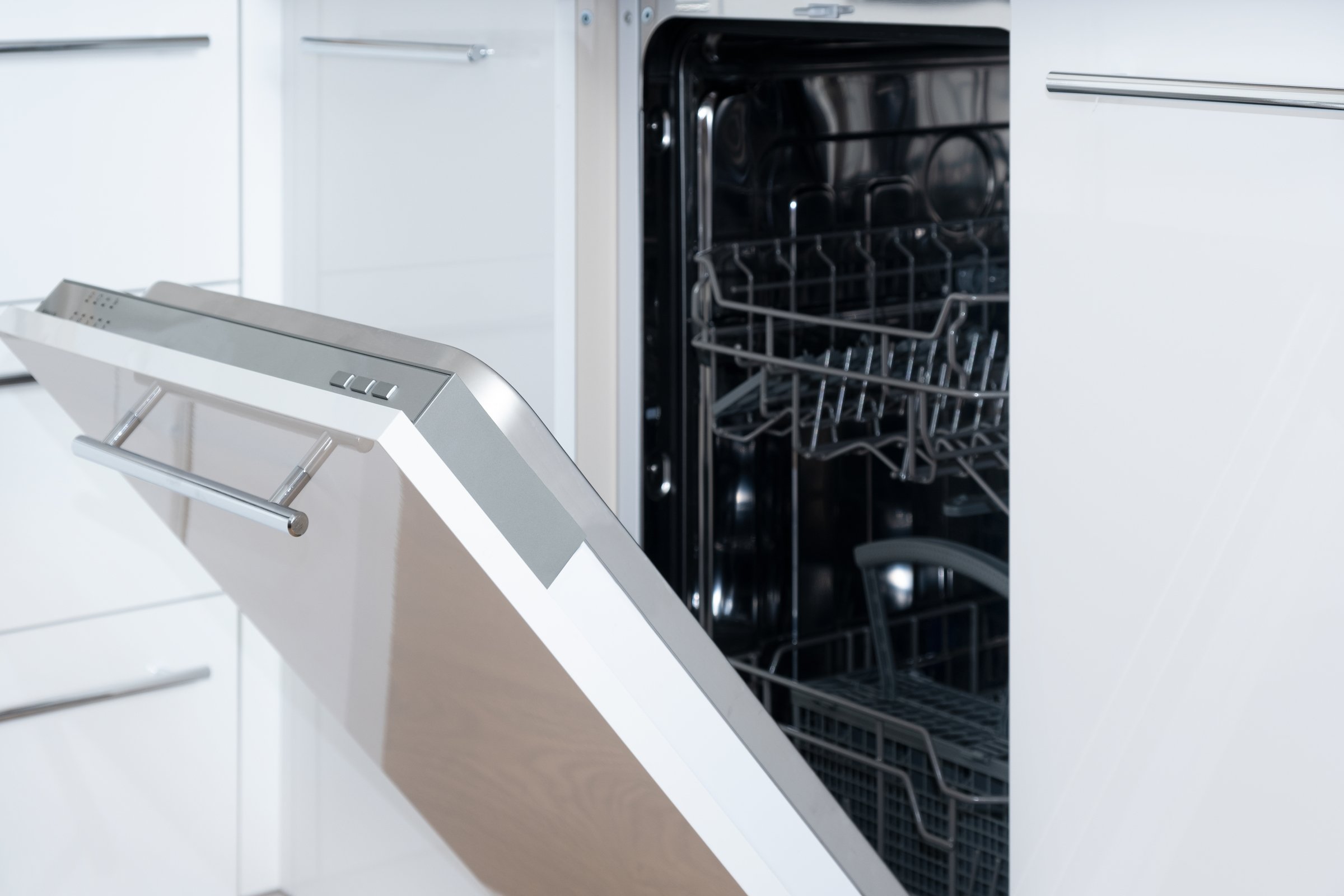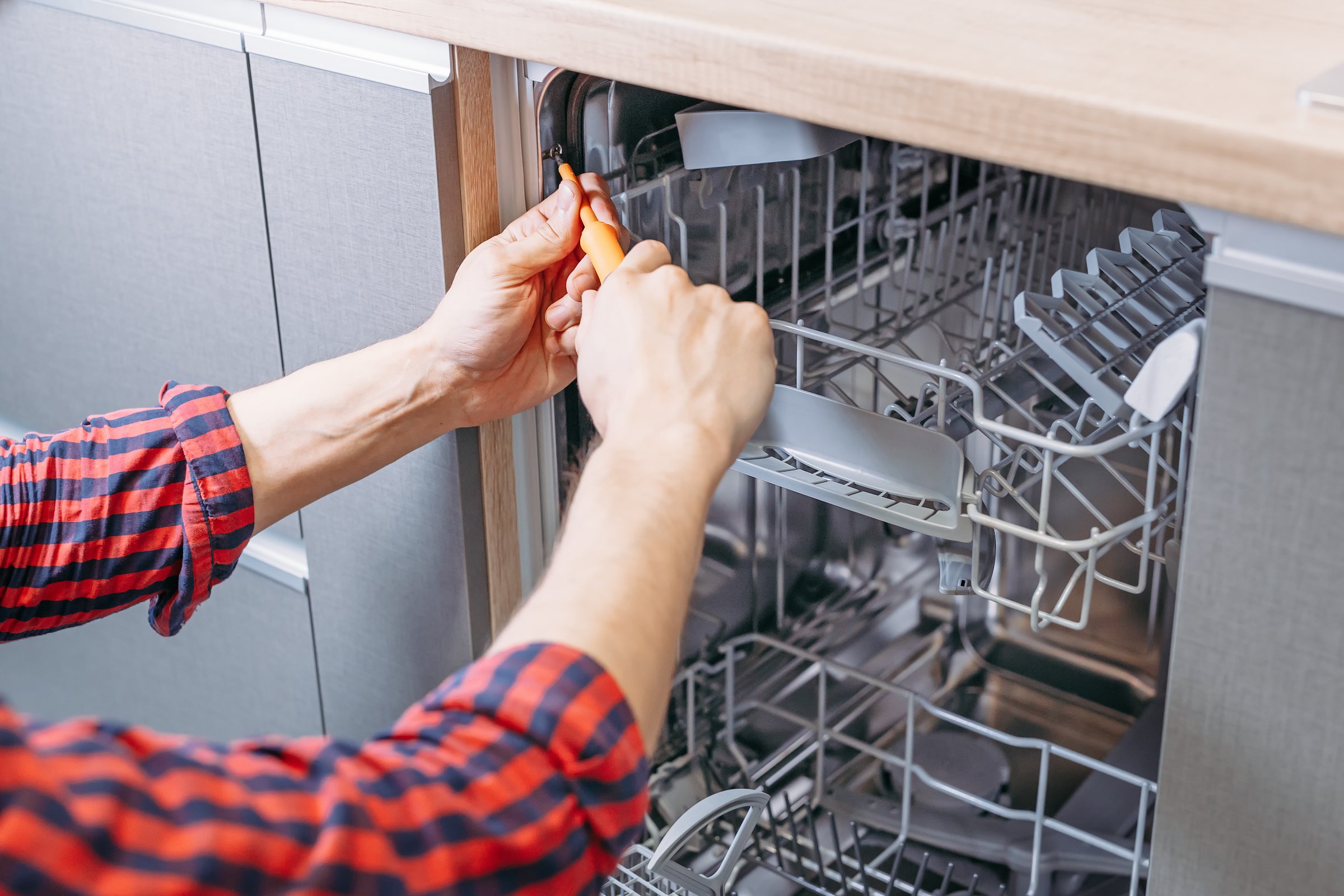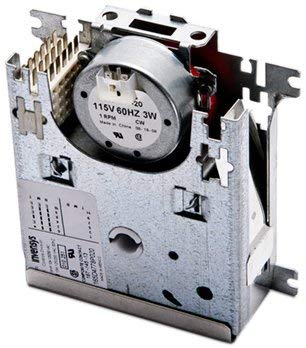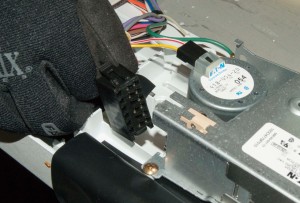Do you have a love/hate relationship with your dishwasher? Have you loaded the dishes perfectly and pressed the button to start, only to come back several hours later to find it's still running?
Before you panic thinking about all the time, money, water and electricity you're wasting, it's time to pull out your toolbox and figure out why your dishwasher won't stop running.
Check the Timer Motor First
 Your dishwasher's cycles are controlled by a timer. It regulates everything from start to finish and switches the machine at proper intervals for filling, heating, washing, rinsing, and drying. If your appliance won't turn off, it may mean you've got a faulty timer motor.
Your dishwasher's cycles are controlled by a timer. It regulates everything from start to finish and switches the machine at proper intervals for filling, heating, washing, rinsing, and drying. If your appliance won't turn off, it may mean you've got a faulty timer motor.
To figure out if the timer motor is the culprit, here’s what you should do.
- Safety first—unplug your dishwasher or flip the circuit breaker off while working on the machine.
- Open the control panel face, remove all screws from the control panel, and screws from the latch. Open the door and remove the door panel screws to locate the timer motor. The timer motor will look like this:
- At the top of the motor, remove the two wires (label them with tape so you can relocate them properly.)
- Use an Ohmmeter to check the motor function. With the setting at X1000, you should get a reading between 2,000 and 3,000 ohms. If not, replace the timer motor.
It Could Be a Heater Element Issue
Your dishwasher is a finely tuned machine. Each cycle is activated by the cycle before it, so if the water isn't heating to the proper temperature, it will be stuck in the heating stage and never switch to the washing stage. If this happens or you notice undissolved detergent, you may have a problem with your heater element.
- As above, disconnect the power source.
- The thick metal rod located at the bottom of your dishwasher is the heating element. Though they it look different depending on who manufactures your dishwasher, the heating element will look something like this:
- To access the wires connecting the part to the machine, remove the lower front panel of the dishwasher.
- Remove the wire connectors and label where they came from with tape.
- With your multimeter on X1, check the terminals. A properly functioning heater element will read between 0 and infinity.
- If not, remove the lock nut holding it in place (you'll need a wrench.) Lift the element up and out. Replace with a new heater element, reconnect the wires and power.
The Thermostat Could Be Malfunctioning
Just like the heater element problem above, if the thermostat doesn't tell the timer that the dishwasher is ready for the next cycle, the washer will continue heating the water and won't stop running. A lot of steam and hot water after an extended period of time may also indicate a broken thermostat.
To replace your thermostat:
- Disconnect the power source.
- Remove the dishwasher outer door panel and control panel.
- Remove the screws to gain access to the bottom front and toe panels.
- Disconnect the wires from the high-limit thermostat and pull out the metal mounting bracket and thermostat.
- Take the thermostat out of the bracket and replace with a new one.
- Reconnect the wires, front access and toe panel, outer door and control panel.
- Restore power.
The Float Switch Assembly Might Be the Culprit
The float switch assembly is responsible for triggering the float switch to fill and drain the dishwasher, so it could cause the dishwasher to keep running if it's not working properly.
- Unplug the machine.
- Locate the float switch assembly under the float bulb in the front corner of the dishwasher.
- Test its operation with a multimeter set to x1. You should get a reading of zero or infinity and a change to the opposite reading when the switch is depressed. If not, the float switch assembly should be replaced.
Still Having Trouble? Contact a Puls Professional
 If your dishwasher still won't stop running after you've tried all these suggestions, it's time to call in a Puls appliance expert. Our technicians are certified to work on all major brand dishwashers and can be at your door the same day, if needed.
If your dishwasher still won't stop running after you've tried all these suggestions, it's time to call in a Puls appliance expert. Our technicians are certified to work on all major brand dishwashers and can be at your door the same day, if needed.
You can trust you'll receive professional troubleshooting, diagnosis and affordable estimate for the repair. If you authorize the repair through Puls, we'll even waive the $79 diagnostic fee.
All parts and services include our 90-day guarantee so you'll feel confident all work will be done right.
It's time to get your dishwasher fixed, so book your Puls appliance repair today.






